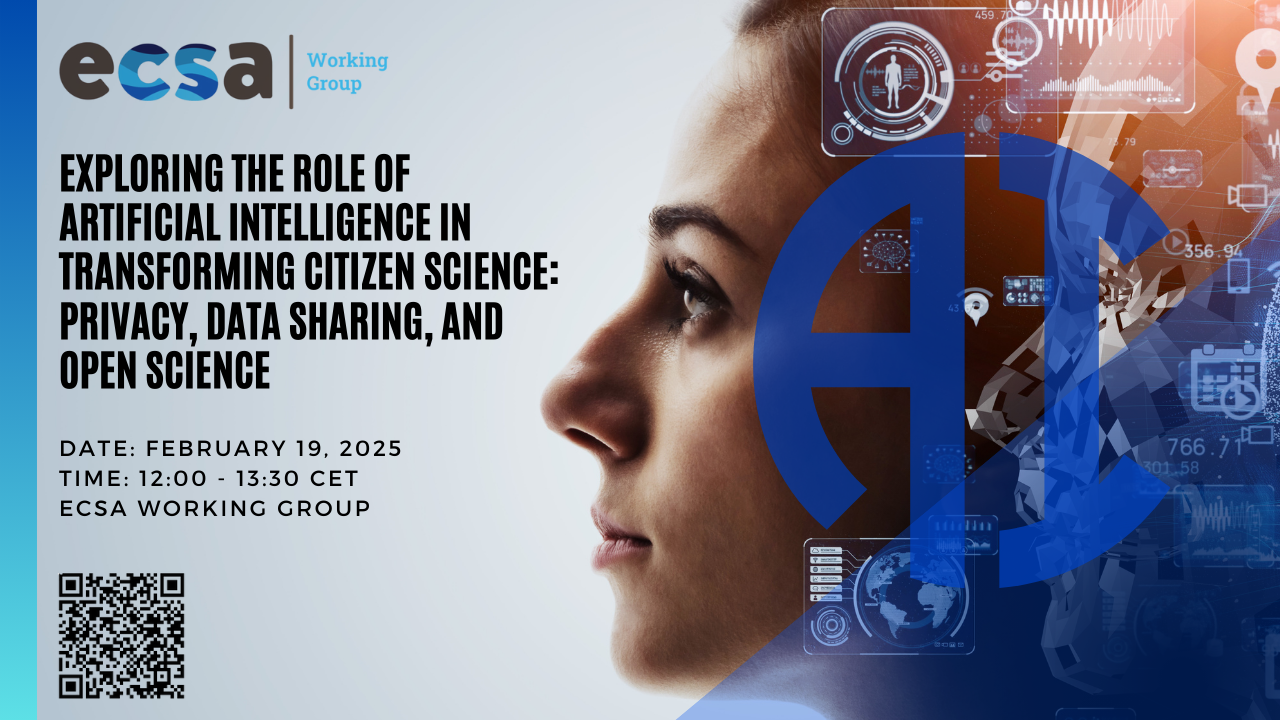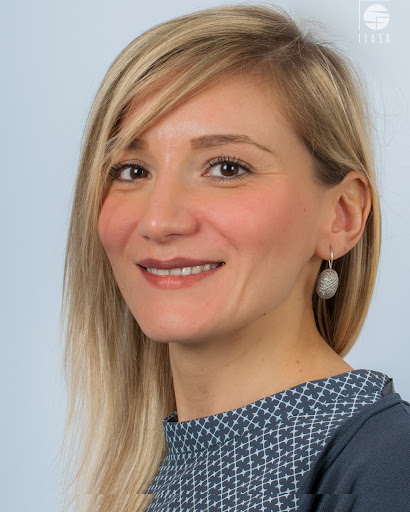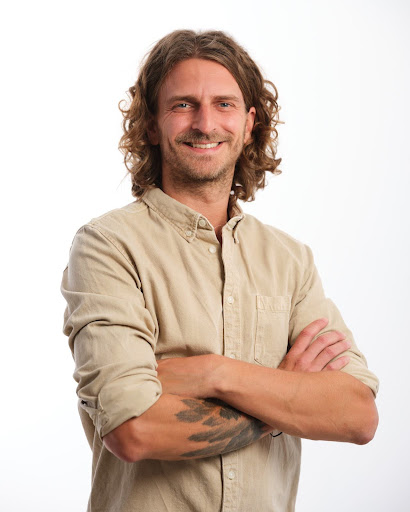Artificial Intelligence (AI) is transforming many fields, but its potential to revolutionise citizen science remains underexplored. This webinar, organised by the ECSA Working Group, will address critical issues around data anonymisation and privacy in large-scale data sharing, and examine how AI can enhance citizen engagement, democratise science, and foster innovative approaches to data management, collection, and analysis.
This webinar will also explore the collaborative potential of AI and citizen science in advancing the Sustainable Development Goals (SDGs). A key focus will be integrating citizen science data into AI systems to address challenges and risks, offering a new perspective on co-creating AI through the mail! Programme in support of sustainable development and open science. Join us for an engaging discussion on shaping the future of citizen science through AI integration.
Date: February 19, 2025
Time: 12:00 – 13:30 CET
Moderator: Gefion Thuermer


Dilek Fraisl
Bio
Dilek Fraisl is a Senior Research Scholar in the Novel Data Ecosystems for Sustainability Research Group at the International Institute for Applied Systems Analysis (IIASA). She also serves as the Managing Director of the Citizen Science Global Partnership (CSGP). Dilek holds a PhD in Sustainability Transitions from Vienna University of Natural Resources and Life Sciences. Her research focuses on data and statistics, earth observation, AI, sustainable development, and citizen science, emphasising its theoretical, practical, and evidence-based applications for policy development. Dilek has led and contributed to citizen science projects addressing marine litter, land use, land cover, and various environmental, socio-economic, and governance issues, funded by the European Commission, UN agencies, and other organizations. She holds board memberships with scientific communities, the UN, and other global initiatives, and is involved in organizing committees and scientific advisory boards for several European and global conferences, including the UN World Data Forum.
Abstract
Both artificial intelligence (AI) and citizen science hold immense potential for addressing major sustainability challenges from health to climate change. Alongside their individual benefits, when combined, they offer considerable synergies that can aid in both better monitoring of and achieving sustainable development. While AI has already been integrated into citizen science projects such as through automated classification and identification, the integration of citizen science approaches into AI is lacking. This integration has, however, the potential to address some of the major challenges associated with AI such as social bias, which could accelerate progress towards achieving sustainable development.
Karen Verstraelen
Bio
Karen Verstraelen works for Scivil, the Flemish Knowledge Centre for Citizen Science, based in Belgium. She is the project manager of the ‘amai!’ project and has been involved with the project since the start in 2021. Karen has a background in theoretical psychology and journalism, with a strong interest in science communication, technology and citizen science.
Abstract
Co-creating AI for societal challenges – the ‘amai!’ approach The amai! project engages citizens in developing AI solutions, from ideas to implementation. Through a citizen science approach, ideas are gathered via a centralized platform and brought to life through open project calls involving partners from industry, civil society, and research institutions. This presentation will outline the phase-based approach of amai! and share key lessons on engaging and empowering citizens to explore AI. The project highlights how citizen participation can democratize AI innovation and governance while building capacities in an enjoyable and accessible way.


Etienne Serbe-Kamp
Bio
Etienne Serbe-Kamp is a neuroscientist and citizen science advocate affiliated with Mi3 Munich Interactive Intelligence, the Max Planck Institute for Biological Intelligence, and Backyard Brains. His studies focus on the neural circuits of vision in the fruitfly Drosophila, but also include physiological signals in all living things, perception, attention, and eye-tracking. Etienne has been deeply involved in science communication, open science initiatives, and citizen science projects. As co-director of the Backyard Brains Summer Fellowship programs, he supports undergraduate students in conducting independent neuroscience research. He co-founded the collective Hirnkastl, which brings science education to schools and public spaces. His work bridges professional neuroscience research with public engagement, fostering greater accessibility and participation in scientific discovery.
Abstract
Harnessing AI to Accelerate Citizen Science in Neuroscience and Beyond. Citizen science has opened new avenues for scientific discovery by engaging the public in data collection and experimentation. With the integration of AI, these efforts can be significantly enhanced, making complex analyses more efficient and accessible. In my work, AI-driven tools transform citizen science projects in neuroscience, from automated analysis of electrophysiological recordings to interactive experiments, allowing participants to explore neural activity in real-time. This talk will highlight how AI democratizes high-level scientific analysis and creates new opportunities for collaborative research in neuroscience and beyond.


